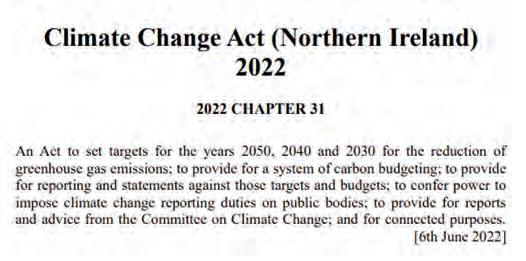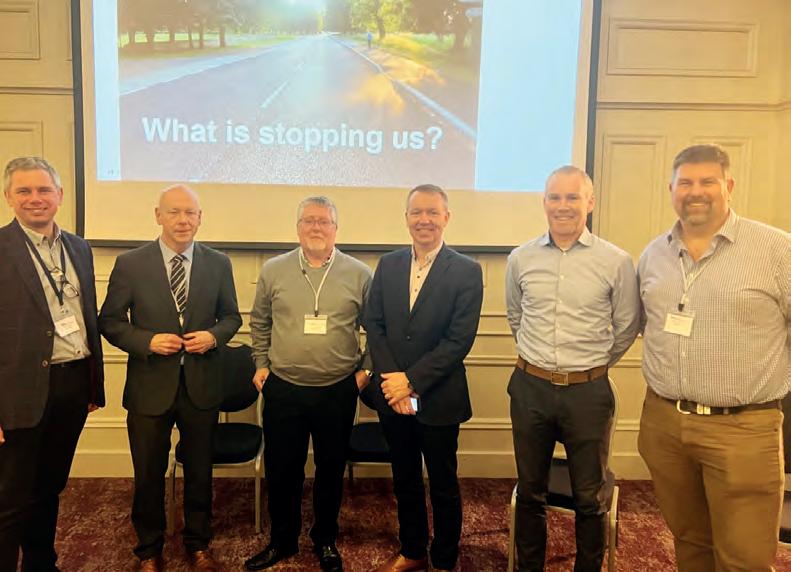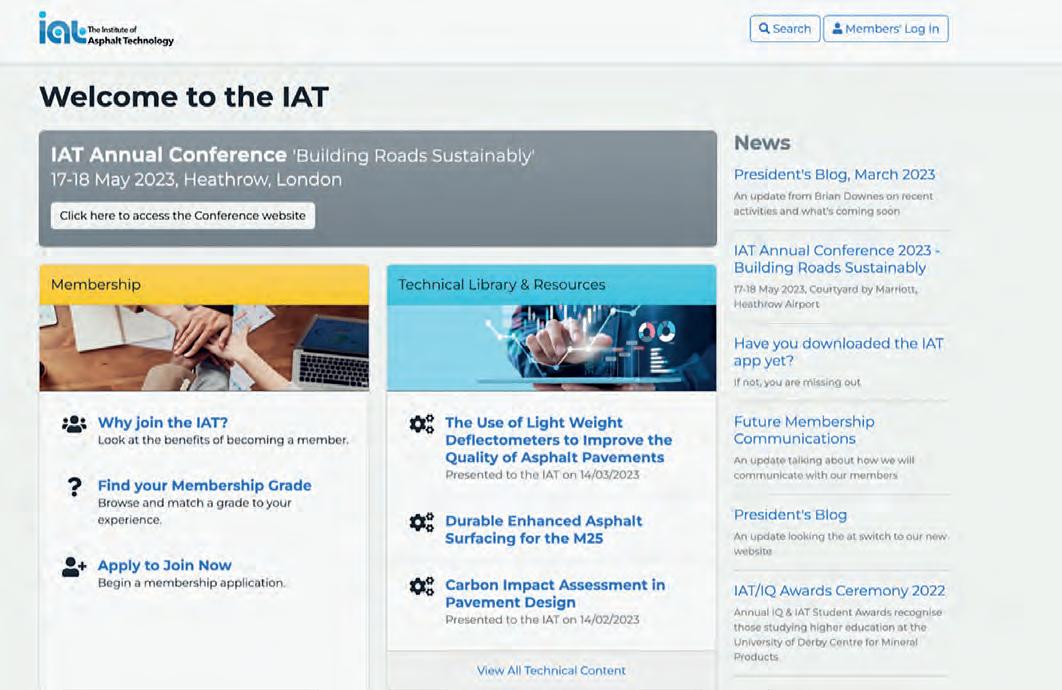
3 minute read
INSTITUTE OF ASPHALT TECHNOLOGY MOVING TO DIGITAL COMMS AND EXPLORING WARM MIX ASPHALT
BY LYLE ANDREW, EXECUTIVE DIRECTOR, IAT
The Institute of Asphalt Technology (IAT) is the Professional Body for persons working in the field of Asphalt Technology and for those interested in all aspects of the Manufacture, Laying, Technology and Uses of materials containing Asphalt or Bitumen.
The Institute has recently changed how we communicate with our members and stakeholders in the asphalt sector. We have ceased publication of our quarterly “Asphalt Professional” magazine and increased the use of electronic media. In conjunction with a facelift for our website, we have launched a smartphone app which is available to both Apple IOS and Android users. All the content that was contained in Asphalt Professional, including technical papers, branch news, committee reports, and more, is now delivered on the website and app.
The IAT app will bring the IAT to your pocket, offering all the events information, resources news and additional features on your smartphone. The app is available to everyone with certain features only accessible to members, providing additional value and hopefully promoting membership growth.
Despite this change in our communication methods, we recognise that sharing knowledge and best practice is often best delivered in a face-to-face environment and our various branches continue to hold regular professional development events, seminars, and training days.
The Iat Warm Mix Asphalt Seminar
Our most recent event was the Northern Ireland Branch seminar held at the Seagoe Hotel,
Portadown, on the very topical subject of Warm Mix Asphalt.
The 85 delegates represented many of the asphalt manufacturing and contracting companies in Northern Ireland as well as local authorities, DfI Roads, Louth County Council and Monaghan County Council. The quality of the presentations was very high and covered perspectives from the client, contractor and supplier. The day concluded with an interesting and active Q & A session.
Malcolm Simms, Asphalt Director of the Mineral Products Association delivered an excellent opening presentation which provided, amongst other things, a wider international perspective on Warm Asphalt. This highlighted that Warm Mix Asphalt (WMA) is not a new product as it has been used successfully in USA for over 25 years and first trialled in the UK over 15 years ago.
Recent data from the European Asphalt Producers Association shows that France uses more than 6.5 million tonnes of Warm Mix Asphalt, almost 20% of their total asphalt production. Great Britain, in contrast, produces less than 1 million tonnes of WMA within a total exceeding 25 million tonnes of asphalt.
David Porter, Director of Engineering, Department for Infrastructure, gave a muchanticipated view from the client authority in Northern Ireland. This highlighted the requirements placed upon the Department by the Climate Change Act (Northern Ireland) 2022. DfI will be responsible for the publication of a Climate Action Plan which will include Sectoral

Plans including Infrastructure and Transport sectors.
It is hoped that the use of technologies such as those used in Warm Mix Asphalt production can be used to contribute to the carbon reduction requirements laid out in the legislation. The second half of the seminar focussed on the practical use and experience to date of WMA in Ireland.

Alan Kavanagh of Colas described the various methods and technologies used to allow temperature reduction in the manufacturing and laying of asphalts before detailing results of both laboratory and site trials of the product. A case study from 2011, on a project for Dublin City Council, demonstrated how the mixing temperature could be reduced by 35 degrees C and provide similar performance to traditional hot mix with added benefits of reduced VOCs (Volatile Organic Compound) on site.
Corin Bridson of Breedon Ireland closed the day’s presentations with the “practicalities and use of warm mix asphalt” where he described the benefits and challenges of the product. This was again based on the successful use of WMA from a case study site at the N55 in Monaghan.
Corin’s concluding slides summed up the overall feeling of the day and asked “What is stopping us?”
• Warm mix is the same asphalt we normally use every day produced at a lower temperature
• Lower temperatures mean;
• less fuel
• less emissions in production and on site

• less CO2
• Produced with little or no plant modifications
• Placed with conventional paving and compaction equipment









